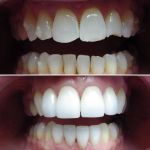 :
:- Signs of Oral Cancer to Watch For
- Symptoms of Oral Cancer: What You Need to Know
- Early Warning Signs of Oral Cancer
- Oral Health and Prevention Tips
- When to Seek Medical Advice for Oral Cancer
- Case Study: Real-Life Example of Oral Cancer Symptoms
Signs of Oral Cancer to Watch For
Oral cancer can develop without much noticeable pain in the early stages, making it essential to be aware of the signs. Understanding the early signs of oral cancer can help you identify potential issues before they worsen. Here are some common signs you should be aware of:
- Unexplained Sores: If you have a sore in your mouth that doesn’t heal after a couple of weeks, it could be a sign of oral cancer.
- Painful Swelling or Lumps: Lumps inside the mouth or on the neck, especially if they are painful or persistent, should not be ignored.
- Red or White Patches: Patches of red or white tissue in the mouth, tongue, or throat may indicate a serious underlying condition.
- Difficulty Swallowing: If you experience trouble swallowing or a feeling that something is stuck in your throat, it’s important to seek medical attention.
- Changes in Voice or Speech: A hoarse voice or difficulty speaking clearly can be an early warning sign of oral cancer.
Symptoms of Oral Cancer: What You Need to Know
While many of the signs of oral cancer are relatively easy to notice, the symptoms can vary depending on the location and stage of the disease. Symptoms often include pain, discomfort, or numbness in the mouth, face, or neck. Additionally, you might notice:
- Pain in the Jaw or Teeth: Persistent pain in the jaw or teeth, especially if it worsens over time, could be a sign of oral cancer.
- Ear Pain: Although ear pain is not directly related to oral cancer, it can occur if the cancer spreads or affects the nerves in the head or neck area.
- Weight Loss: Unexplained weight loss, particularly in the absence of a change in diet, can be a sign of more advanced stages of oral cancer.
Early Warning Signs of Oral Cancer
Early detection is crucial when it comes to oral cancer, as catching it in its early stages greatly improves treatment outcomes. Look out for these early warning signs:
- Persistent Mouth Sores: Sores that don't heal within two weeks should be checked out by a healthcare professional.
- Visible Lesions: Unexplained white or red patches on the gums, tongue, or other oral tissues should not be overlooked.
- Changes in the Fit of Dentures or Teeth: If your dentures no longer fit properly or you notice unusual changes in your bite, it’s time to consult a dentist.
Oral Health and Prevention Tips
Maintaining good oral health is one of the best ways to prevent oral cancer. Regular dental checkups, avoiding tobacco, and drinking alcohol in moderation are important steps in oral cancer prevention. Here are some tips to keep your mouth healthy:
- Brush and Floss Regularly: Brushing your teeth at least twice a day and flossing daily helps keep your gums and teeth healthy, reducing your risk of oral cancer.
- Quit Smoking and Limit Alcohol Use: Smoking and excessive alcohol consumption significantly increase your risk of developing oral cancer.
- Regular Dental Checkups: Visiting your dentist regularly for checkups ensures that any early signs of oral cancer are detected quickly.
When to Seek Medical Advice for Oral Cancer
If you experience any of the signs or symptoms mentioned above, it's important to seek medical advice immediately. Your dentist or doctor can perform a thorough examination and, if necessary, refer you for further testing, such as a biopsy or imaging scans. Early intervention is critical in successfully treating oral cancer.
Case Study: Real-Life Example of Oral Cancer Symptoms
Let’s consider the case of Sarah, a 47-year-old woman who noticed a small, painless ulcer on the side of her tongue. After several weeks, the sore didn’t heal, and she started experiencing difficulty swallowing. Concerned, she visited her dentist who immediately recommended a biopsy. The results showed that Sarah had early-stage oral cancer. Thanks to her quick action and the early diagnosis, Sarah was able to undergo treatment and is now cancer-free.
This real-life case highlights the importance of noticing changes in your mouth and seeking medical advice early. Regular dental visits and staying aware of potential symptoms can save lives.
If you are concerned about your oral health or have noticed any of the signs mentioned, consider visiting us at Dentistry Toothtruth for expert advice and the best dental care options.







 Inspire Dental of Maine4.0 (297 review)
Inspire Dental of Maine4.0 (297 review) Green Pond Dental Associates: Bracha Lubart DDS4.0 (58 review)
Green Pond Dental Associates: Bracha Lubart DDS4.0 (58 review) Morrison Dental Group - Mechanicsville4.0 (382 review)
Morrison Dental Group - Mechanicsville4.0 (382 review) Wonderful Smiles - Puyallup Dentist4.0 (115 review)
Wonderful Smiles - Puyallup Dentist4.0 (115 review) Naples General & Cosmetic Dentistry LLC4.0 (688 review)
Naples General & Cosmetic Dentistry LLC4.0 (688 review) Dentistry for Life4.0 (712 review)
Dentistry for Life4.0 (712 review) The Importance of Oral Health Education During Pregnancy for a Healthy Pregnancy
The Importance of Oral Health Education During Pregnancy for a Healthy Pregnancy Best Tips for Brushing Your Teeth Properly for Healthy Gums: Essential Techniques for Oral Health
Best Tips for Brushing Your Teeth Properly for Healthy Gums: Essential Techniques for Oral Health Why Skipping Dental Checkups Can Lead to Bigger Oral Health Problems
Why Skipping Dental Checkups Can Lead to Bigger Oral Health Problems Advantages of Porcelain Dental Restorations
Advantages of Porcelain Dental Restorations How Can Diabetes Cause Tooth and Gum Problems? Preventing and Managing Oral Health Issues
How Can Diabetes Cause Tooth and Gum Problems? Preventing and Managing Oral Health Issues Healthy Habits for Promoting Good Oral Health and Hygiene: Tips for a Healthy Smile
Healthy Habits for Promoting Good Oral Health and Hygiene: Tips for a Healthy Smile